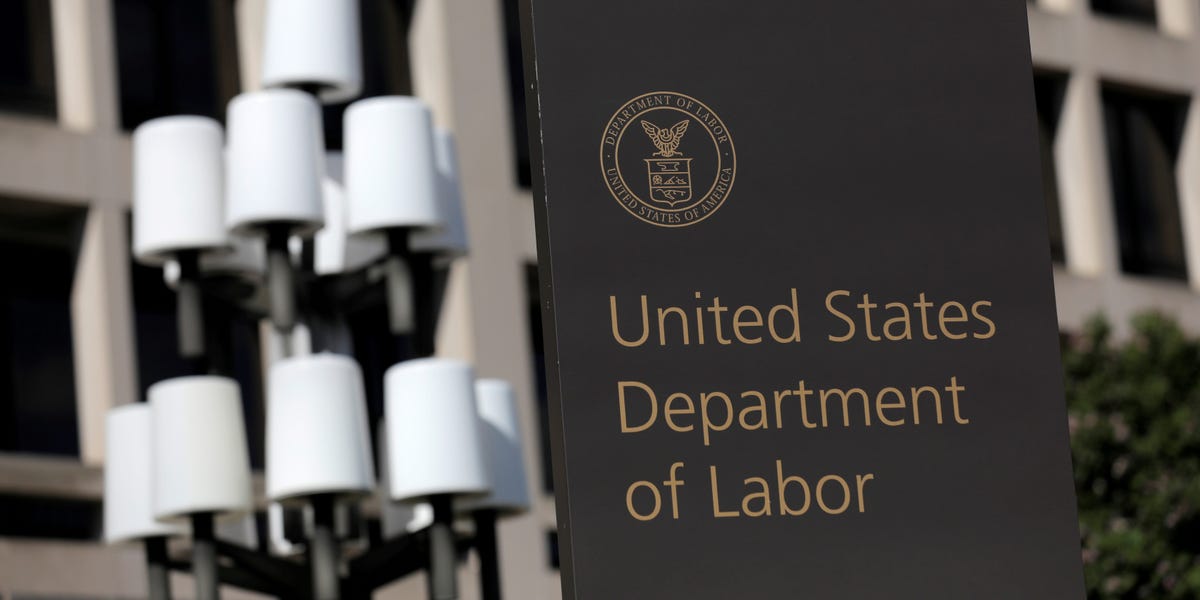The Labor Department only fines businesses on average $8,500 when a worker dies from a heat-related illness
As record-setting heat consumes parts of the United States this summer, people who work outdoors are facing serious threats to their lives.
Heat-related illness and death were already becoming more common among workers in the United States. The three-year average of heat-related worker deaths has doubled since 1990, a 2021 report from NPR and Columbia Journalism Investigations revealed.
And with the death of US Postal Service carrier Eugene Gates Jr. last month in Dallas on a day when the heat index reached 115 degrees Fahrenheit, many workers and their families are on edge. A 46-year-old construction worker named Felipe Pascual also died in June in Houston from heat stroke.
Businesses must stop placing profit and efficiency over worker safety, said Richard Gleason, an associate teaching professor on workplace safety and occupational health at the University of Washington, especially in excessive heat.
“There has got to be some extra emphasis on responsibility and liability,” he said.
The Occupational Safety and Health Administration, or OSHA, meanwhile, is not adding much punitive incentive for companies to do more to protect workers in the heat. According to federal data reported between 2017 and 2022, the Department of Labor fines businesses governed by federal OSHA regulations an average of just $8,539.98 if an employee dies because of heat-related illness.
Several individual penalties were as low as $2,000, according to Gleason.
“$2,000 — come on, that’s crazy,” Gleason told Insider. “And that’s typical for federal OSHA.”
There are 22 states that have state-run OSHA plans that govern both public and private employees. State OSHA plans tend to be more proactive when creating workplace safety rules and have more inspectors who can monitor conditions, Gleason said.
“They have to be at least as strict as [federal] OSHA, but they can be better and safer,” Gleason said.
Some incidents in states governed by federal regulations — such as an unnamed employee who died of heat exhaustion while working with a coke oven in West Virginia — resulted in no fines at all. The lowest non-zero fine came out of Wisconsin in 2022: The federal office required a business to pay just $1,000 for the heat-related death of 37-year-old Thomas Linkous, a construction worker who died of heat stroke. The case is still open as of July 15, so the company — Farrell Quality Carpentry Inc. — can still appeal that penalty, meaning it may end up even lower.
“The codes and penalties are very small,” Gleason said.
The average fine for states with the strictest state-level OSHA penalties — like California, Washington, and Oregon — tends to be closer to $20,000, according to Gleason. But, Gleason said, “Even $20,000 is pretty low when you think about it.”
Gleason also noted that federal OSHA fines for worker deaths are significantly smaller than that of other federal agencies.
“The average Environmental Protection Agency penalty is 10 times that of federal OSHA for a worker that dies,” Gleason said. “It’s pretty weird, if you ask me.”
One major barrier to progress includes the slow pace at which the federal OSHA office can change its policies, Gleason said. He estimated it would take 10 years to update its heat-related safety guidelines, while states can do so far more quickly — within a single legislative session, even.
“The states can be a little more efficient, they can change their own rules,” Gleason said.
The Department of Labor did not respond to a request for comment ahead of publication.
Story time!
So I’m a factory worker. My job is to load parts into a welding press, weld, inspect the part, and then load it into a finished goods bin. My work station, though, is actually two different work stations combined together so all night I have to hustle back and forth over a 10 meter gap to load parts from one station to the next. The parts, themselves , are big pieces of steel that are jammed together to save space in the WIP bin and require effort to force apart to take out and load. I go through 500 cycles of this a night.
As you can imagine, this is hot and sweaty work. The best part? I only had a single fan on one of the stations, so only got the blessed cooling air once every couple minutes when I ran back to the other station.
I asked for a second fan on my second station back in fuckin April. By June I was actually delirious and worked myself into collapse, had to be taken off the production line as a sobbing wreck.
I got a fan installed later that fucking day. Those fucks could have given me a fan at any time. They chose to wait until I had a near miss and caved my head in on a goods bin before deigning to give me anything.
We are machines to them, meant to be used until we break. Only after something breaks will they bother to fix the problem.
We are absolutely not machines to them. In a capitalist society, human life has no meaningful value beyond the profit it creates for other, wealthier people. Machines are generally far more cost effective than humans, and are therefore inherently more valuable.
I disagree. A machine has no value beyond the profit it creates for it’s owner and the cost of replacement. A worker is the same to them - property that can be used to generate surplus value until it breaks and then traded for a replacement.
Believe me, I’ve seen how they treat them machines in my production area. As long as they can hit it with a wrench and it works they don’t give a shit. They only wish they could hit me with a wrench when I get tired!
Machines don’t demand time off or benefits, and they sure as shit don’t try to unionize.
They only wish they could hit me with a wrench when I get tired!
Plenty of employers do. They’re called farmers and contractors. Just go ask literally any undocumented worker.
Hey, I work in America in a so-called “right to work” state - they sure as shit aren’t going to unionize where I work either.
fines are useless unless they scale to be equally as punishing for any receiver.
The fines are a cost of doing business now.
Business: Oh noooooooo. Anyways…
deleted by creator
Government regulation is dictated by politicians who are lobbied by the companies who are regulated…
Wow, what a bargain!
Wouldn’t want to inconvenience the shareholders







